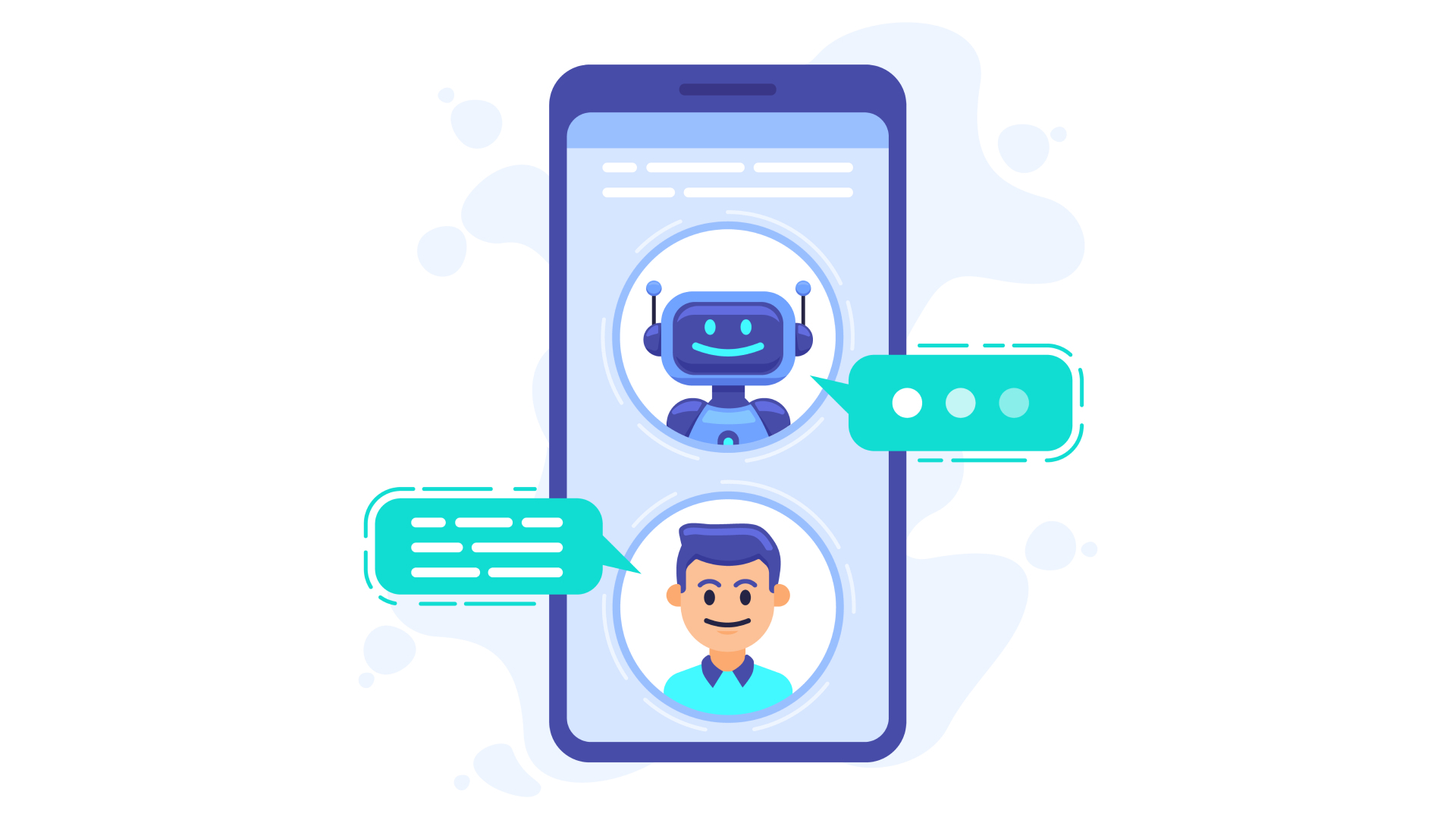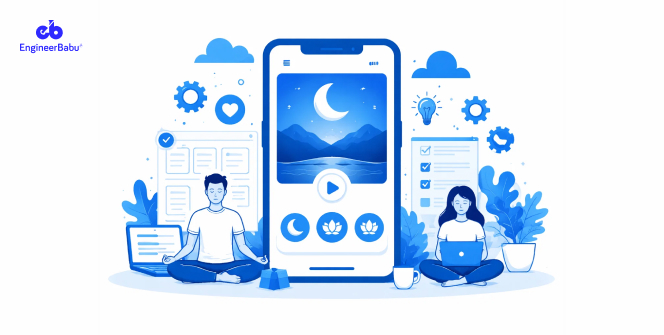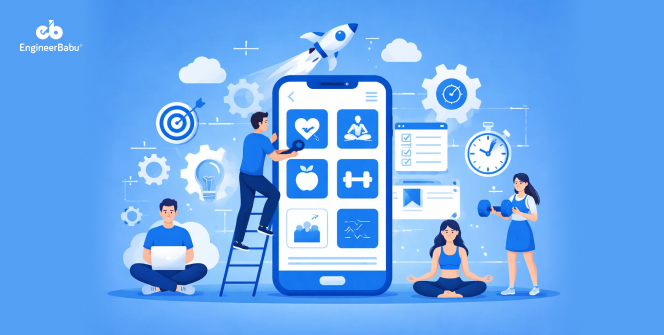Waiting on hold for 26 minutes just to reschedule a doctor’s appointment? That’s not patient care—it’s a test of patience.
Now, imagine messaging your healthcare provider and getting an instant response—no hold music, no transferring, just answers.
Chatbots are revolutionizing patient engagement by delivering real-time support, faster responses, and always-on access to care information.
In the U.S., over 64% of patients say the healthcare system is hard to navigate. And 33% of patients have skipped appointments or delayed care because of scheduling hassles or communication breakdowns. These aren’t just inconveniences—they’re gaps that impact outcomes.
Chatbots step in where traditional systems fall short. They’re not replacing doctors or nurses. They’re helping patients get the right support at the right time without the usual back-and-forth, and the results are starting to show.
In this blog, we’ll break down: How these bots are changing the way hospitals and clinics connect with patients.
Let’s start with what life looked like for patients before the bots came along.
Revolutionizing Ways Chatbots are Changing Patient Engagement
24/7 Availability and Instant Responses
One of the biggest challenges in healthcare is accessibility. Patients often struggle with long wait times to book appointments, get symptom evaluations, or obtain general health information.
How Chatbots Solve This Issue
- Round-the-clock Assistance: Unlike human staff, chatbots are available 24/7, immediately responding to queries anytime.
- Quick Answers to Common Questions: Patients no longer need to call a clinic and wait on hold for simple inquiries about office hours, insurance policies, or prescription refills.
- Faster Emergency Response: While chatbots can’t replace emergency medical services, they can guide users to the appropriate actions, such as calling 911 or directing them to the nearest hospital.
Real-World Example
Cleveland Clinic’s chatbot assists users in managing their health queries, providing symptom guidance, and directing them to the correct medical department when needed. Research suggests that over 60% of patients prefer using chatbots for non-urgent medical concerns because of their speed and convenience.
Impact on Patient Engagement
By reducing response time and ensuring accessibility, chatbots keep patients engaged and informed, leading to better health outcomes.
Improved Appointment Scheduling and Management
Missed appointments cost the U.S. healthcare system more than $150 billion annually. Many patients either forget their appointments or struggle with the complex scheduling process.
How Chatbots Solve This Issue
- Seamless Appointment Booking: Chatbots integrate with hospital scheduling systems, allowing patients to book, reschedule, or cancel appointments within seconds.
- Automated Reminders: They send reminders via SMS, email, or app notifications, reducing no-show rates significantly.
- Pre-Appointment Preparation: Chatbots can guide patients on required medical tests or fasting instructions before visits.
Real-World Example
Mayo Clinic’s AI assistant has helped streamline appointment bookings by providing patients with an easy-to-use chatbot system. This has reduced appointment no-shows by 30%, improving healthcare efficiency.
Impact on Patient Engagement
Patients appreciate the convenience of automated scheduling, ensuring they stay connected with their healthcare providers without unnecessary delays.
Personalized Symptom Assessment and Health Advice
Patients often turn to Google to self-diagnose, which can lead to misinformation and unnecessary anxiety. Chatbots help by offering reliable, AI-driven symptom analysis based on actual medical data.
How Chatbots Solve This Issue
- AI-Driven Symptom Checkers: Chatbots ask patients about their symptoms, medical history, and risk factors before suggesting possible conditions.
- Triage and Next Steps: They determine whether the user should seek immediate medical attention, schedule a consultation, or use home remedies.
- Integration with Electronic Health Records (EHRs): Some chatbots access patient records to provide personalized advice based on past medical history.
Real-World Example
Babylon Health, a UK-based AI chatbot, analyzes patient symptoms and provides possible diagnoses. Studies show it matches or exceeds general practitioners’ diagnostic accuracy in up to 80% of cases.
Impact on Patient Engagement
Chatbots offer instant and reliable symptom analysis, empowering patients to take control of their health while ensuring they seek the proper medical assistance.
Enhancing Medication Adherence and Chronic Disease Management
Poor medication adherence is responsible for nearly 50% of treatment failures and about 125,000 deaths annually in the U.S. Patients often forget to take their medications or fail to follow treatment plans.
How Chatbots Solve This Issue
- Medication Reminders: Chatbots send timely notifications to remind patients to take their medicines.
- Tracking Health Progress: For chronic disease management, chatbots can ask patients about symptoms, medication side effects, or changes in their condition.
- Diet and Lifestyle Guidance: They provide personalized recommendations for diet, exercise, and mental well-being, especially for conditions like diabetes, hypertension, and cardiovascular diseases.
Real-World Example
Ada Health, an AI-powered chatbot, helps chronic disease patients monitor symptoms and medication intake. Patients using AI-driven reminders have shown a 40% improvement in medication adherence.
Impact on Patient Engagement
With personalized support and timely reminders, patients stay engaged in managing their health effectively.
Providing Mental Health Support and Therapy Assistance
The demand for mental health services has increased significantly, but access to therapists remains limited due to long wait times and high costs.
How Chatbots Solve This Issue
- AI-Powered Therapy Assistance: Mental health chatbots offer coping strategies, guided breathing exercises, and self-help resources.
- Anonymity and Comfort: Patients struggling with anxiety or depression often feel more comfortable speaking to a chatbot before seeking professional help.
- Crisis Support: Some AI chatbots detect signs of severe mental distress and direct users to emergency support services or hotlines.
Real-World Example
Woebot, a clinically validated mental health chatbot, provides users with Cognitive Behavioral Therapy (CBT) techniques. Studies show that patients using Woebot report a 22% decrease in depression symptoms within two weeks.
Impact on Patient Engagement
AI chatbots provide immediate support and guidance, ensuring patients receive mental health assistance whenever needed.
Streamlining Insurance and Billing Inquiries
Navigating health insurance claims and billing can be overwhelming for many patients. Understanding co-pays, deductibles, and coverage details often requires multiple calls to customer service, leading to frustration.
How chatbots are revolutionizing patient engagement
- Instant Answers to Insurance Questions: Chatbots provide details about policy coverage, claim status, and co-pay requirements without the need to call an agent.
- Billing Assistance: They explain medical bills, break down charges, and guide patients on payment options.
- Claim Filing Support: Chatbots can assist patients in filing insurance claims by gathering necessary documents and submitting them electronically.
Real-World Example
UnitedHealthcare uses AI-driven chatbots to help members check their coverage, understand benefits, and track claims. It also pushed a 267% increase in consumers’ net promoter scores among those interacting with Find Care & Costs.
Impact on Patient Engagement
By simplifying insurance and billing, chatbots reduce patient stress and confusion, leading to a smoother healthcare experience and increased trust in healthcare providers.
Bridging Language Barriers in Healthcare
Language differences can be a significant obstacle for non-English speaking patients, leading to miscommunication, misdiagnosis, and delayed care. With healthcare becoming more global, multilingual support is essential.
How Chatbots Solve This Issue
- Multilingual Conversations: AI chatbots are programmed to communicate in multiple languages, ensuring patients receive care in their preferred language.
- Medical Translation Services: Some chatbots translate doctor-patient conversations in real-time, reducing errors in medical history documentation.
- Cultural Sensitivity Adaptation: AI-driven chatbots adjust their communication style based on cultural nuances, improving patient trust.
Real-World Example
Babylon Health’s chatbot supports multiple languages, allowing users from different backgrounds to access healthcare guidance without language barriers.
Impact on Patient Engagement
By enabling seamless communication, chatbots increase accessibility, accuracy, and patient comfort, leading to better healthcare outcomes for diverse populations.
Conclusion
AI chatbots are transforming patient engagement by offering instant responses, personalized health insights, and improved healthcare accessibility. They reduce administrative burdens, help manage chronic diseases, and support mental well-being.
With healthcare systems facing increasing patient loads, chatbots enhance efficiency, improve outcomes, and foster a more connected healthcare experience.
As AI technology advances, chatbots will continue to play an even more significant role in delivering high-quality, patient-centered care.
FAQs
1. Are healthcare chatbots accurate?
Yes, AI-powered chatbots are trained on medical databases and often provide 80-90% accuracy in symptom assessments. However, they do not replace professional medical diagnosis.
2. Can chatbots handle emergencies?
No, chatbots are not a replacement for emergency medical services. They can recognize urgent symptoms and direct users to appropriate emergency care.
3. Are chatbots HIPAA-compliant?
Many healthcare chatbots adhere to HIPAA and GDPR to ensure patient data security and privacy.
4. Can chatbots reduce healthcare costs?
Yes, chatbots can reduce healthcare operational costs by up to 30% by automating routine queries, scheduling, and symptom assessment.
5. Do mental health chatbots replace therapists?
No, mental health chatbots provide initial support and guidance but do not replace professional therapy. They are helpful as complementary mental health tools.




